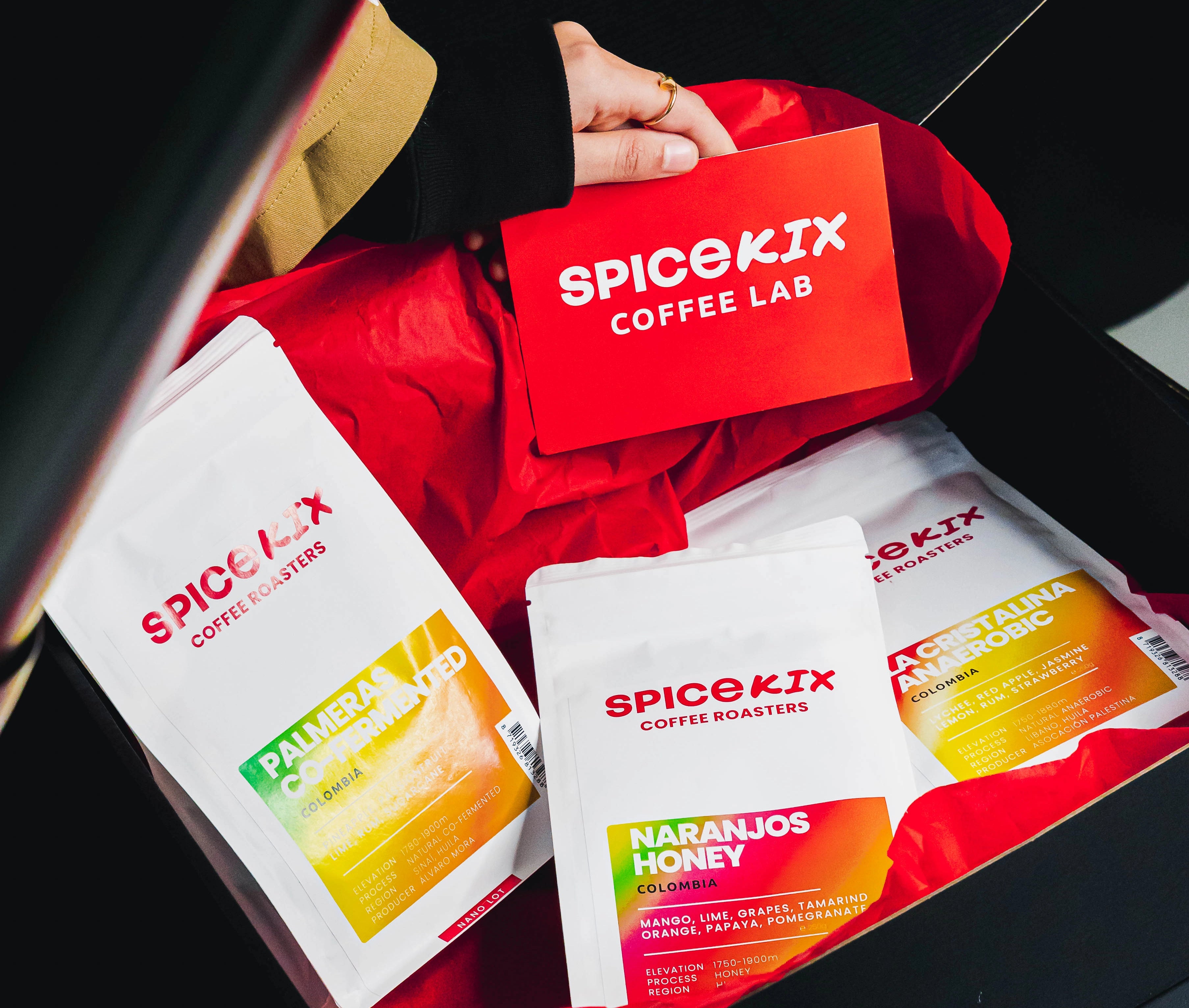We adore this coffee! A Pink Bourbon co-fermented with fresh coconut, results in an unexpected balanced cup full of sweetness, juiciness and sparkling acidity.
Behind this amazing coffee there is an amzing story of six farmer families coming together to create exceptional coffeess in an ecological way:
Núcleo de gestión Las Palmas
In the south of Huila, in the municipality of Palestina, the Central and Eastern Andes meet in a dramatic landscape of forests, rivers, and coffee fields. On this agricultural frontier, right next to the Cueva de los Guácharos National Park, six farming families formed the Núcleo de gestión Las Palmas. Their farms do more than produce coffee — they also act as a natural buffer, protecting one of Colombia’s most important ecosystems.
Co-Fermentation process:
This nano lot stands out for its careful cherry selection and a complex natural anaerobic fermentation with fruits.
Only fully ripe cherries were harvested by selective picking and further sorted by floating in water to ensure the highest density fruit.
Ten days prior to harvest, a mosto solution was prepared by macerating Isabelina grapes, vanilla flower, and coconut pulp. In coffee processing, mosto refers to the fermenting liquid in which the coffee is submerged. It is naturally rich in sugars, yeasts, and bacteria, and when enhanced with fruits it provides additional sucrose for the yeasts to consume, accelerates the fermentation, enhance complexity and contributes aromatic precursors that can carry through into the cup.
All fruits came from the farms in this area, ensuring that the microbial environment and character of the terroir were preserved. The name of this lot, Tierra Néctar, underlines this idea — everything used comes directly from the surrounding land, literally from the soil and nature of the farm itself.
For this nano lot, the cherries underwent 48 hours of aerobic fermentation in open tanks, before being sealed in anaerobic barrels together with the prepared mosto, where they fermented without oxygen for 120–150 hours. Once fermentation was complete, the coffee was dried in a greenhouse structure for about
18–22 days.
Fast Delivery with Track & Trace. DHL Express for all international orders.







